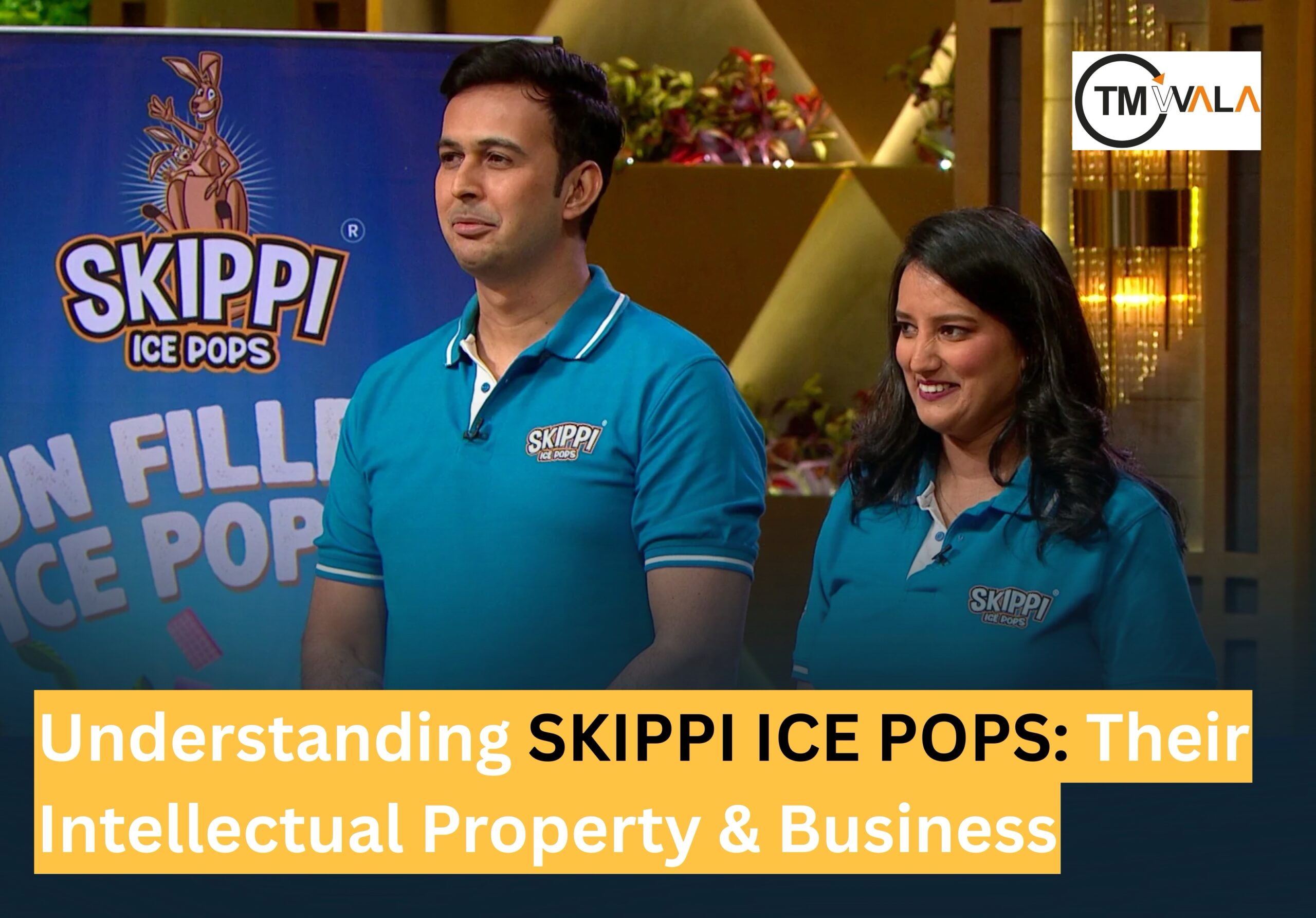
Sometimes the simplest of childhood memories can spark a million-dollar business. That’s exactly what happened with Ravi and Anuja Kabra, the husband-wife duo behind Skippi Ice Pops.
If you grew up in India in the 80s, 90s, or even early 2000s, you probably remember those colourful ice pops sold outside schools, in playgrounds, or by your local shopkeeper. They were cheap, fun, and yet refreshing. But they were also unbranded, often unhygienic, and inconsistent in quality. Over the years, they quietly disappeared from the mainstream. In nostalgia, the Kabras saw a chance. They transformed the common ice pop into a branded, hygienically packaged, and safe product that would appeal to both parents and kids. Thus, Kabra Global Products Pvt. Ltd., the parent company of Skippi Ice Pops, was established.
Their big moment came in Shark Tank India Season 1 (2021), where they pitched as the first-ever ice popsicle brand on the show. What made their pitch legendary was that they became the first company to bag investment from all five Sharks. They were valued at ₹1 crore for 15% equity. The Sharks were sold on the simplicity of the idea, the nostalgia factor, and most importantly, on their clarity of execution. Skippi’s USP is simple but powerful:
They revived a long-forgotten classic in a market dominated by ice cream and colas, but this time they focused on compliance and branding.
Using intellectual property filings to safeguard their packaging and brand name was one of Skippi’s best early decisions. In FMCG, branding is everything. Without IP, anyone could copy the name, replicate the colours, and ride on your marketing spend. Here’s a quick look at their IP filings:
| Trademark | Class | Description | Application No. | Date | Proprietor | Status |
| Skippi Ice Pops (Wordmark) | 35 | Wholesale and retail services related to ice pops | 4916551 | 22 Mar 2021 | Kabra Global Products Pvt. Ltd. | Registered |
| Skippi (Logo + Label) | 30 | Flavoured ice pops, ice cream, confectionery | 4916548 | 22 Mar 2021 | Kabra Global Products Pvt. Ltd. | Registered |
| Skippi Ice Pops (Device) | 30 | Frozen desserts & ice pops | 4916549 | 22 Mar 2021 | Kabra Global Products Pvt. Ltd. | Registered |
What this means is:
So not only is the name “Skippi Ice Pops” legally theirs, but also the retail service under which it is sold. While trademarks protect the brand, copyrights protect the creatives. Skippi holds copyrights in:
Their tube-format stickless packaging is registered as a distinct design to stop competitors from replicating its packaging with its mascot and distinctive appearance. But their recipes cannot be patented because ice pops are not novel.
In a low-barrier FMCG space, strong IP ensures customer trust and deters copycats. Imagine if multiple small players started selling “Skippi-style” popsicles without IP protection, the brand would lose exclusivity. The Kabras were therefore smart enough to secure their brand name before going on to Shark Tank as it reassured the Sharks as well.
Beneath the colourful packaging and whimsical branding is a web of legally binding contracts that run the business safely and effectively.
When they would have written that cheque for ₹1 crore, the Sharks and their lawyers would have done intensive due diligence. It is a check-up of a business in medical terms, and for an FMCG business, it’s exhaustive. A standard due diligence process in case of Skippi would involve:
This attentiveness was important because the Sharks were investing in a brand. Anything undone in the legal or regulatory underpinning could have dissolved their investment more quickly than an ice pop on a hot day.
Other start-ups can learn a few things from Skippi’s journey:
Skippi Ice Pops proves that innovation doesn’t always mean inventing something new; it can mean bringing back something old in a smarter, safer, and more marketable way.
From unbranded street-side popsicles to an organised FMCG brand backed by five Sharks, Skippi shows how legal strategy and brand protection are just as important as product innovation. For entrepreneurs, the message is clear:
Skippi’s story serves as a reminder that sometimes the most endearing ventures are based on early memories that are bolstered by investor confidence and legal protection.
Author Details-Apoorva Lamba(3rd Year Student, Madhav Mahavidyalya, Jiwaji University, Gwalior)
Get started instantly

TMWala
Your one stop shop for all your business registration and compliance needs.
Choose your Entity Type
Non-MSME/ Large Entitie
Individual/ MSME/ Sole Proprietorships

₹9,000.00 Original price was: ₹9,000.00.₹3,999.00Current price is: ₹3,999.00.
Trademark Application @ ₹3999* (Premium Discounted Plan for MSME/Individual/Sole Proprietorships) Comprehensive
Government Fees
₹4500/-

₹9,000.00 Original price was: ₹9,000.00.₹3,999.00Current price is: ₹3,999.00.
Trademark Application @ ₹3999* (Premium Discounted Plan for Non-MSMEs/Large Entities) Comprehensive
Government Fees
₹9000/-
Choose your Entity Type
Individual/ MSME/ Sole Proprietorships
Non-MSME/ Large Entities
₹3,500.00 Original price was: ₹3,500.00.₹1,999.00Current price is: ₹1,999.00.
Government Fees
₹4500/-
₹3,500.00 Original price was: ₹3,500.00.₹1,999.00Current price is: ₹1,999.00.
Government Fees
₹9000/-
Choose your Entity Type
Individual/ MSME/ Sole Proprietorships
Non-MSME/ Large Entities

₹1,500.00 Original price was: ₹1,500.00.₹999.00Current price is: ₹999.00.
Trademark Application @ ₹999* (Basic Discounted Plan for MSME/Individual/Sole Proprietorships) Best-Selling, Economical & Easy

₹1,500.00 Original price was: ₹1,500.00.₹999.00Current price is: ₹999.00.
Trademark Application @ ₹999* (Basic Discounted Plan for Non-MSMEs/Large Entities) Best-Selling, Economical, Quick and Easy